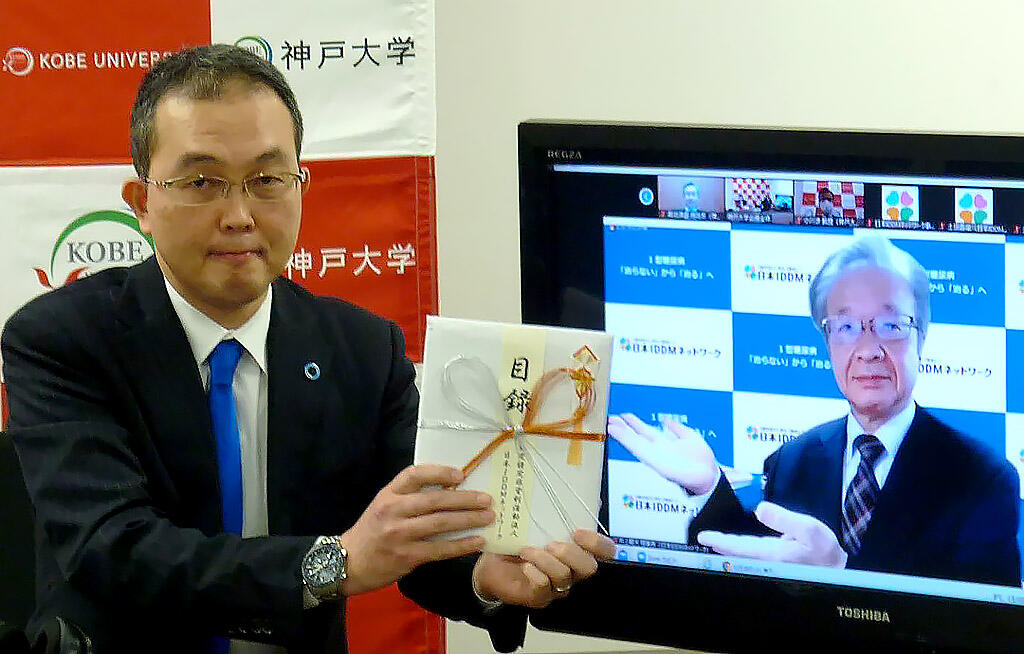The certified NPO "Japan IDDM Network" (President Tatsuo Inoue) and Kobe University (President Masato Fujisawa) held a research grant presentation ceremony online on December 28, in which Associate Professor Yushi Hirota (Graduate School of Medicine, Kobe University) and others received a grant for the "Development of a telemedicine system for patients with type 1 diabetes." The grant amount was ¥10 million. At the presentation ceremony, President Inoue presented the grant certificate to Associate Professor Hirota. The grant is based on crowdfunded donations given to the Saga Prefectural Agency for the aforementioned NPO via the hometown tax payment system. This crowdfunding effort elicited a total of 297 donations.
In a study funded by the grant, Associate Professor Hirota and his colleagues are aiming to establish a treatment method using a new blood glucose control index with data obtained from a continuous glucose meter (CGM), which is widely used in patients with type 1 diabetes. Type 1 diabetes is caused by a marked decrease in the secretion of insulin due to the autoimmune destruction of pancreatic β-cells. Glycemic control, which mainly involves self-monitoring of blood glucose and replacing insulin with injections, is required throughout life. Physicians use blood sampling to measure blood HbA1c levels, which reflect changes in glycemic control, over several months to diagnose and guide patients' glycemic control. In the meantime, during the pandemic, the medical examinations of patients were withheld from the viewpoint of infection prevention, and the prolonged period during which HbA1c levels could not be measured became a problem.
In this study, the researchers used a new glycemic control index (CGM index) obtained from the CGM, which has become popular in the last 10 years, and aimed to build a system that enables individuals to receive high-quality medical care without measuring the HbA1c values. In addition, in response to the revision of medical fees in the second year of the Reiwa era, which made it possible to provide remote nutritional dietary guidance using ICT within the scope of insurance medical treatment, patients who cannot come to the hospital using this mechanism will be able to share their CGM index values with registered dietitians and doctors. By doing so, they will help in the building of a medical system that combines telemedicine with normal medical care. Several manufacturers have launched CGM measurement devices. The researchers believe that any of them can be used, regardless of the manufacturer or model.
On the other hand, since there are currently multiple evaluation methods for CGM indicators, they aim to standardize this process. Specifically, we will standardize the evaluation method using time above the glucose range (TAR), time in range (TIR), and time below range (TBR). With this realization, it is expected that high-quality medical care can be provided to patients regardless of their preferred medical institution. A project team of 19 physicians from 15 medical institutions including Kobe University Graduate School of Medicine has already been organized and started their investigations. The company aims to realize this goal in 2024. Associate Professor Hirota said, "We want to create an environment in which patients can be treated with reassurance by realizing and implementing this plan."

This article has been translated by JST with permission from The Science News Ltd.(https://sci-news.co.jp/). Unauthorized reproduction of the article and photographs is prohibited.




